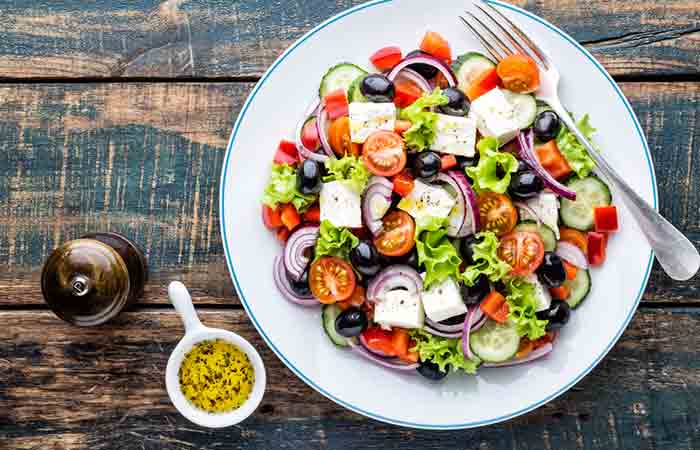Do you ever feel like you’re not getting enough nutrients? Well, you’re not alone! Many people think that way because many of us are not getting enough of certain nutrients. While some people can get away with eating a relatively limited amount of nutrient-dense foods, others may need to eat more certain foods to get the nutrients they need.
Foods that are low in carbohydrates are a great way to get the nutrients you need while also losing weight. This article will learn about the benefits of low-carb eating and the foods you should eat to lower your carbohydrate intake.
What is a Low-Carb Diet?
A low-carb diet is a diet in which most of your daily calories come from carbohydrates, typically less than 50 grams per day. The most common carbohydrate sources in low-carb diets are vegetables, fruits, and whole grains.
Low-carb diets are often used to lose weight, improve health conditions such as diabetes and hypertension, or feel better by reducing your intake of certain carbohydrates that may negatively affect your mood and performance.
There’s some debate about a healthy diet, so it’s important to remember that low-carb diets aren’t universally healthy. Some healthy people may feel best when they eat fewer carbs. However, low-carb diets aren’t recommended for everyone, and it’s important to consult a dietitian or health care provider before making any changes to your diet.
Low-Carbs = Good
Low-carb diets are often very low in calories, so it’s important to understand the benefits of a low-carb diet. Restricting your intake of carbohydrates can help you lose weight and feel better by reducing your insulin levels. Insulin is a hormone that our bodies produce when eating foods containing carbohydrates.
After eating, our bodies use insulin to help our cells take in nutrients. Unfortunately, insulin levels rise when we eat too many carbs, which can cause our blood sugar levels to drop.
When our blood sugar levels are too low, we become alert, but we become anxious and irritable if they are too high. So, by reducing your insulin levels by eating fewer carbs, you can feel better and have more energy to get things done.
Low-Carb Foods
The majority of your daily calories should come from foods low in carbohydrates. – Vegetables – Consume a wide variety of vegetables every day. They are low in calories, high in vitamins, and provide fiber, which helps you feel fuller longer and can help lower your blood pressure.
– Fruits – Fruits are low in calories and provide antioxidants and other health-promoting benefits, including vitamins and dietary minerals. Whole grains are typically rich in dietary fiber, vitamins and minerals and are also gluten-free, so they are suitable for people with celiac disease.
– Dairy – Dairy products are a great source of protein, which helps your body build and repair cells, muscles, and other tissues. Fish – Fish is a rich source of lean protein and vitamins and minerals such as Selenium, Vitamins A, B12, C, E, and D, and Omega-3 fatty acids, which help promote heart health and protect bones.
Low-Carb Benefits
Research suggests that people who eat a low-carb diet may experience certain health benefits, such as – – Weight loss – A low-carb diet may help you lose weight since it reduces your intake of calories, which is often accomplished by eating fewer carbs.
– Improved acne – Certain acne-fighting elements can be found in vegetables, such as vitamin A and C, both found in many kinds of vegetables. – Improved mood – Eating a low-carb diet may help you feel better by reducing your insulin levels, which may help improve your mood.
– Reduced risk of type 2 diabetes – People who eat fewer carbs may have a lower risk of developing type 2 diabetes because carbs are a major source of insulin. – Better breathing – People who eat fewer carbs tend to breathe better because carbs are a known contributor to increased levels of stress hormones in the body, while protein is known to lower these stress hormones.
– Reduced blood pressure – A low-carb diet may help reduce your blood pressure by lowering your insulin levels.
Low-Carb Drawbacks
Despite their benefits, low-carb diets do have some drawbacks. – Protein deficiency – If you don’t eat enough protein, you may experience fatigue, poor mental focus, muscle weakness, nausea, constipation, inadequate growth and development of muscle tissue, and an increased risk of osteoporosis.
– Excess sodium – Low-carb diets often contain fewer salt-containing foods, such as processed foods, which can lead to excess sodium levels in the body, increasing your risk of high blood pressure. – Food boredom –
Summary
Low-carb diets encourage you to eat fewer carbohydrates, typically less than 50 grams per day. The majority of your daily calories should come from low-carb foods. Low-carb diets are often very low in calories, so it’s important to understand the benefits of a low-carb diet.
They may help you lose weight, feel better by reducing your insulin levels, and improve your mood with improved mood and breathing. They also have several drawbacks, such as protein deficiency, excess sodium, and food boredom. Make sure to consult with your doctor before making any changes to your diet.


